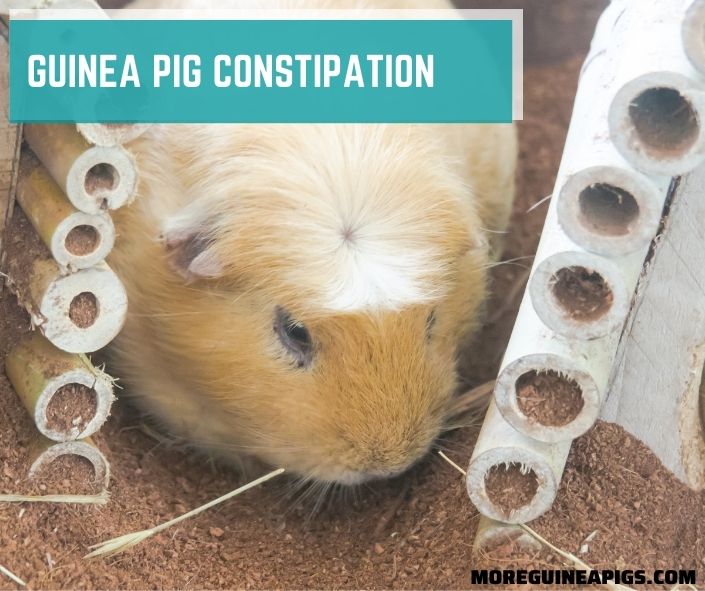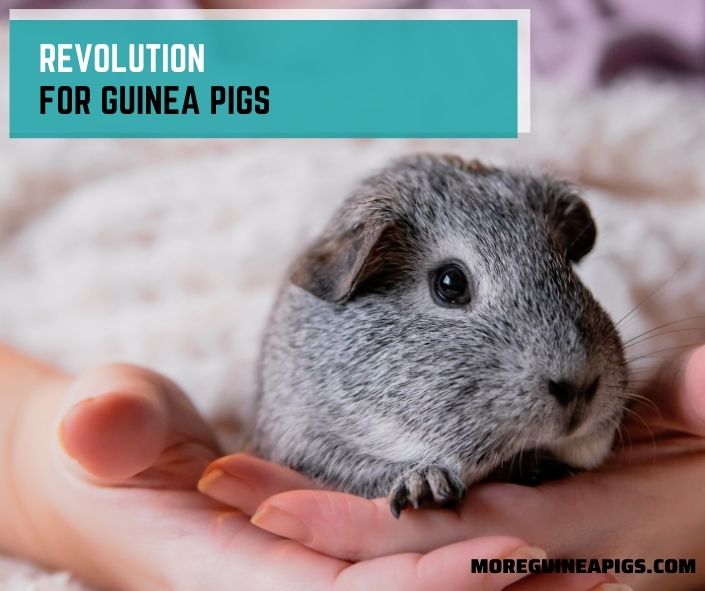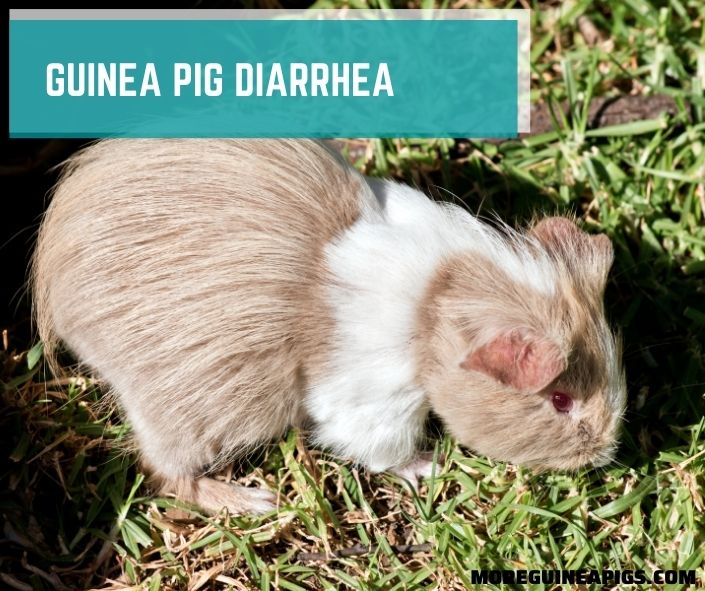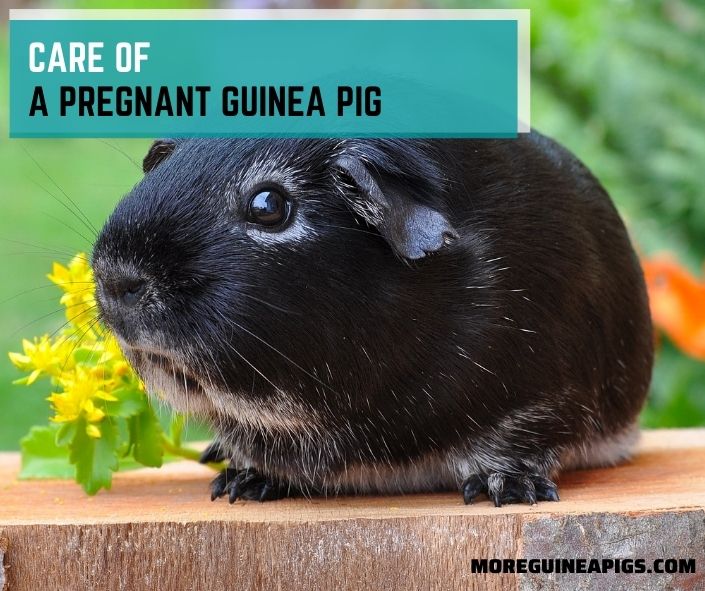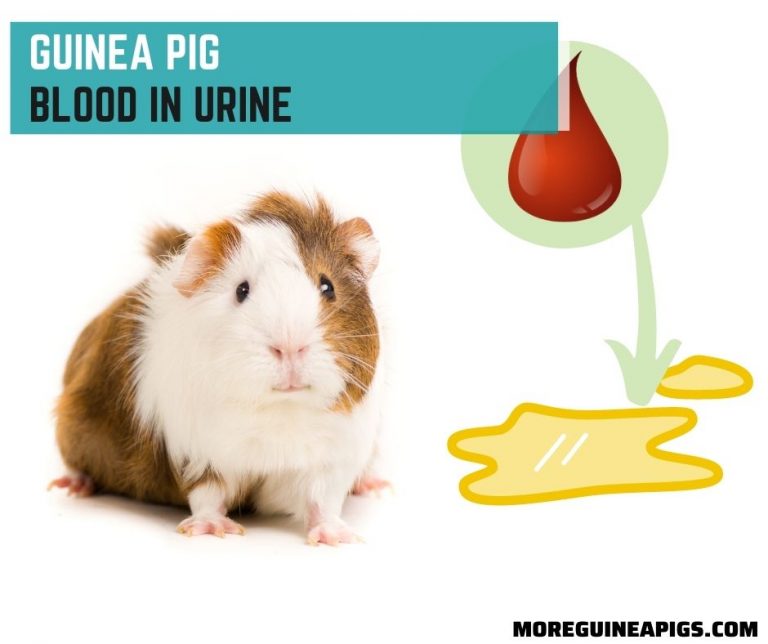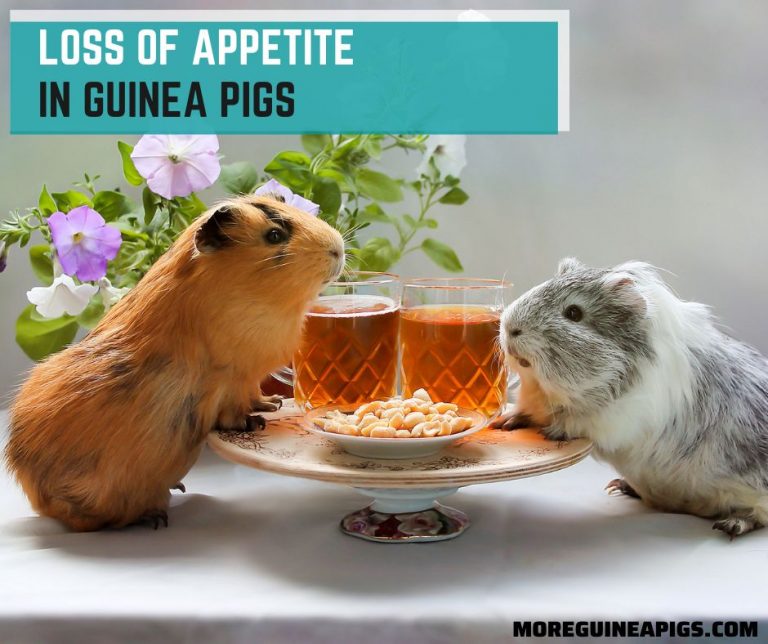Guinea Pig Constipation (Everything You Need to Know)
Guinea pig constipation is an important topic that both current and prospective piggy owners cannot avoid.
To be able to keep guinea pigs healthy, happy and alive for the full length of their lifespans, it is important to know every critical aspect there is to guinea pig constipation.
This article delves into the areas of information relevant to this topic. You will learn how to spot symptoms of constipation, how to respond to them, and some ways to prevent it from occurring in your pet in the first place.
Symptoms of Guinea Pig Constipation

One tell-tale sign of guinea pig constipation is passing lesser poop than is normal. On average, guinea pigs can poop up to 100 times a day, with other breeds even crossing this mark.
If your cavy is having less bowel movements, it may be an indication of constipation.
Lumpy or hard stools is yet another symptom of constipation. A healthy guinea pig passes a smooth but firm, oval, pellet-stool which is brown in color.
While there may be variations in the shade of poop from one guinea pig to the next, when your cavy is healthy, it will produce a consistent color.
A constipated guinea pig also tends to strain when having bowel movements, because of the hardness of the stool.
Since it finds it difficult to evacuate its bowels, the cavy may shy from eating and become rather dull in its demeanor.
Abdominal pain and possible discolouration of the abdomen may also be indicative of constipation.
Also read: Guinea Pig Poop: 7 Different Shades and What They Mean
5 Causes of Constipation in Guinea Pigs
Some of the main causes of constipation in guinea pigs include poor diet, insufficient water, intestinal blockage, anal impaction and stress.
A stressed guinea pig may not feel at ease enough to feed as is expected, and if it’s usual digestive cycle is disrupted, constipation may result down the line.

Poor Food
Poor digestion stemming from an unhealthy diet may also contribute to constipation in guinea pigs. Vegetables, for instance, provide additional water and healthy fibers needed for effective and smooth digestion and bowel movements.
Care should also be taken not to give overly sugary treats as this may not be healthy in the long run.
Also read: 10 Best Guinea Pigs Commercial Food
Lack of Water
When the piggy does not drink sufficient water, the intestines become dry and make bowel movements difficult. This automatically results in constipation and discomfort for the guinea pig.
Intestinal Blockage
An intestinal blockage may result from various causes including obesity, eating materials like floss and twisting of its intestines.
The guinea pig will then present with bloating, abdominal pain, difficulty in passing stool, discolored abdomen and a generally anxious mood.
Anal Impaction
When feacal matter builds up in the guinea pig’s anal sack and it is unable to dispel of it, the result is constipation. Anal impaction is painful for the guinea pig as feces stretch the sack. In serious cases, impaction may be fatal.
Faecal impaction is most often seen in older males, possibly due to the location of their testicles and fat deposits.
Stress
Stress may also contribute to constipation in guinea pigs as it may affect its usual, healthy feeding patterns.
Being lonely, boredom from lack of toys or sufficient space to play, and loud noises may all cause stress in a piggy, and contribute to its constipation.
Also read: How To Play With Guinea Pigs
Guinea Pig Constipation Treatment
There are some measures that you can take to relieve the pig’s constipation at home, and get your pet happy and healthy in no time.
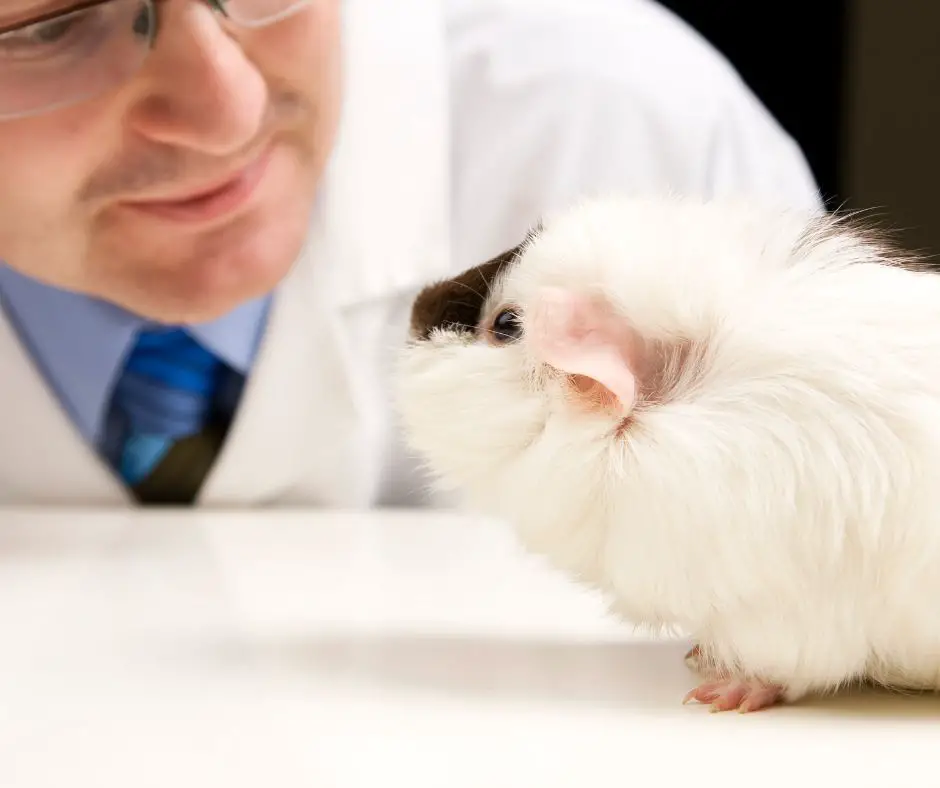
Improve Guinea Pig’s Diet
Improving the guinea pig’s diet is one way of ensuring that your pet feels instant relief and is protected from future occurrences of constipation.
Adding soft fruits that do not contain a lot of sugars and green veggies to their diets is one such improvement.
Fresh fruits and vegetables on a daily basis ensure that the cavy gets vitamin C and healthy fibers in its diet.
Nevertheless, be sure not to force the guinea pig to eat as it naturally regulates its consumption based on its body’s needs.
Also read: What Can Guinea Pigs Eat? A-Z Food List
Add Water Bottle
Another simple way to relieve the constipation is to ensure that your pet gets better hydration.
Insufficient water in the diet may result in a dry tract and hard stool pellets which are hard to expel. An additional bottle offering unflavored water may help in this regard.
Also read: Do Guinea Pigs Know How To Use Water Bottle? – 7 Best Water Bottles for Guinea Pigs
Lixit Chew Proof Flat Sided Water Bottles for Rabbits
Give Your Guinea Pig a Probiotic
Probiotics restore a healthy balance to the gut bacteria to help with the piggy’s digestion and excretion. They can be found at most pet stores, and come with fairly easy-to-administer instructions.
It is important not to give guinea pigs dairy products such as yogurts which act as probiotics in humans.
Such products may burden the digestive tracts of guinea pigs which are not complex enough to handle them. This may worsen the situation if the pet is already constipated.
Probios Vet Plus Dispersible Digestive Powder, 240gm
Use Olive Oil and Help Directly With Your Hands
Olive oil offers an easy solution for relieving the constipation discomfort in your guinea pig, especially if it has an impaction.
Wear a pair of gloves and apply olive oil gently to the visible feces to soften them. This makes it possible for them to be expelled easily.
It is important not to inject the oil into the guinea pig’s rectum by use of a syringe as this may harm the cavy.
Moreover, application of the oil should be gentle and without undue pressure as this may push the fecal matter inwards, causing the piggy more discomfort.
Pompeian Smooth Extra Virgin Olive Oil
Consult a Veterinarian and Follow Instructions
If the home solutions do not appear to help relieve the symptoms of constipation after a few hours, it may be necessary to consult a veterinarian and follow their instructions.
This is crucial because prolonged constipation may be the result of serious intestinal problems which could result in your pet’s death.
What Happens if Guinea Pig Constipation is Untreated?

If the constipation of your pet is caused by an intestinal blockage, then it might not live for more than 48 hours with it.
It is important to head to a vet if the home remedies you have tried are not helping to relieve constipation after 24 hours, or if the guinea pig is showing other signs such as a reduced appetite or lethargy as this is often a sign of a blockage.
Gentle massages, laxatives to smooth bowel evacuation and if necessary, an enema may be good remedies to try out if you notice that the pet appears constipated.
Failing to poop for as little as 12 hours may cause obvious distress in a guinea pig which may worsen if the constipation is not treated immediately.
How to Prevent Guinea Pig Constipation
A number of simple measures may help ensure that your pig does not suffer from constipation in future. Offering healthy fruits as snacks and introducing green veggies in its daily diet will go a long way in keeping your pet’s rectum healthy.
Additionally, ensure that your pet gets sufficient fresh water in its cage, and replenish the supply as needed throughout the day.
You also need to provide your pet with a companion, as stress from loneliness may affect its feeding habits, and lead to constipation.
Furthermore, be sure to have the cage in a quiet environment to prevent them from getting irritated by loud noises.
Also read: Guinea Pig Setup: Step By Step Guide
Pet Toilet/Potty Training Pads for Guinea Pigs
In conclusion
Guinea pig constipation may indicate a serious condition depending on its cause. For instance, if the constipation results from a poor diet, intestinal tract lubricants may relieve discomfort and bring about smooth bowel movements.
Mineral oils that can be purchased over the counter and olive oil can also be used in this regard.
However, if the constipation results from more serious causes such as bowel obstruction, it may be important to head to the vet straight away.
Such an obstruction often presents with symptoms which worsen every 12 hours. Lethargy, anxiety and hunching over may also be seen in a guinea pig with gastrointestinal obstruction.
Therefore, it is important to closely monitor your guinea pig as soon as you notice a behavioral change related to its bowel movements.
In the event that intestinal lubricants do not seem to offer relief after 24 hours, it is important to quickly see a vet to prevent dire results.
